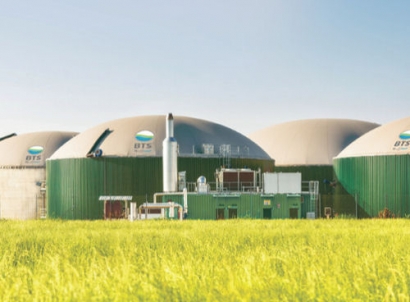
"Entering into this partnership with ENGIE provides us with incredible opportunities to leverage our technology and expertise on decarbonization projects," said Franco Lusuriello, CEO of BTS Biogas. "Anaerobic digestion is experiencing a renaissance, with increased interest throughout Europe, Asia and now North America – but our heart and our home is and will always be Italian. Through this deal we can help ensure that Italy meets its zero-carbon goals, invests in sustainable projects that encourage economic recovery and contributes to the global fight against climate change."
The agreement will create a shared project pipeline for the two companies, allowing both to maximize their considerable experience in developing, constructing and managing facilities that create renewable natural gas from organic waste. By limiting the amount of waste sent to landfills and incinerators, these anaerobic digestion projects significantly reduce of air pollution and greenhouse gas emissions.
"This is a valuable partnership" agrees Damien Terouanne, CEO of ENGIE Italia - "ENGIE aims to be the leader of the zero-carbon transition and is committed to the realization of numerous projects for the production of sustainable energy. In BTS Biogas we have found profound technological competence for the construction of advanced biomethane production plants with numerous environmental and economic advantages. In the current historical context progress in the field of environmental and social sustainability means pushing and supporting economic recovery."
BTS Biogas has a 20-year track record of developing anaerobic digestion projects and has built and operated more than 200 facilities around the globe. In 2019, BTS Biogas has joined Bioenergy DevCo, a developer of anaerobic digestion facilities in the United States. Most recently, BTS' technologies and expertise have been deployed in North America through deals with major food companies and natural gas utilities.
The projects developed through this partnership are expected to have significant positive economic impacts on their local communities, creating new jobs and encouraging additional investment in sustainable waste and energy solutions. Projects are expected to begin construction within the next year.

